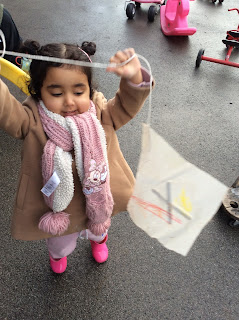
Why is reading so important?
Enjoying books and reading stories from a very early age is crucial in the development of children. It helps with their ability to understand words, use their imagination and develop their speech, as well as being something they really enjoy.
Teachers and parents play a huge part in the development of reading skills in young children. The more children experience books the more they will gain the interest and passion for them. Reading offers so much more than just quiet time in a cosy corner. It helps to develop spelling, listening, writing, literacy and social skills.
Young children need to be able to experience books; they need to be able to understand and enjoy stories, books, rhymes and songs and listen and respond to them with curiosity and enjoyment.
This will promote the value and pleasure of reading and encourage an interest in reading throughout school and in later life.
Even from a very young age child love books. It provides the opportunity to learn through touching and feeling different textures, along with experiences different actions.
There are some great early years books with pop up pages, lift-the-flap pages, noisy pages and different textured pictures to really get babies and toddlers engaged with books.
Children develop more rapidly during the first five years of their lives than at any other time. That's why they are called the foundation years – the building blocks for life! Throughout these important first years if they attend a nursery, pre-school or primary school, their progress will be monitored.
Below is a guide, set by early years’ foundation, to explain the various stages children are monitored and milestones they might reach in terms of literacy.
8-20 months
A child should have an interest in holding and looking at books by this age. It is important they can hold books so they can see what is going on whilst listening to you read the stories. They can learn what books are and play with pages.
16-26 months
By this age most children can identify their favourite books and stories they want to see and hear. They can recognise and mimic actions from their favourite songs and stories. Encourage this by always letting them join in with storytelling and songs, let them point to things they can recognise or make the sounds of things in the book.
22-36 months
By the age of three, children should be able to fill in missing gaps in stories and songs that they have heard repetitively. They have their favourite books and songs and they can help to tell the tale. By pausing during a story they know well you give them the opportunity to fill in the gaps and add more words to their vocabulary.
30-50 months
By four, children should be able to recognise the story being read to them, they can help with telling the story and can anticipate the end of the story. They should be able to join in with rhymes and be able to recognise words that start with the same sound such as ‘big boat’. They should also be able to recognise words that mean something to them, such as their own name or mummy, favourite shops and places.
They can sit and listen for longer and can hold the book correctly and turn pages by themselves.
40-60 months
By the age of five, a child is expected to be able to remember and speak words that rhyme like cat and hat and sat. Their imaginations and vocabulary mean they are able to tell their own made up stories and can make up their own songs. Story time doesn’t mean you just read to them – it’s far more interactive.
They can understand and read simple sentences and they use their phonics knowledge to sound out words to read them accurately. They can also demonstrate a real understanding of what has been read or said to them.
























































